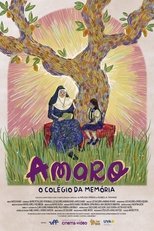
Nélida Piñon
1934-05-03
The Biography
Nélida Cuiñas Piñon was born in May 3, 1934 in the middle class Vila Isabel area of Rio de Janeiro to Olivia Carmen Cuíñas Piñón, a homemaker and Lino Piñón Muíños, a merchant. Her mother was the child of Galician immigrants, her father a first generation Galician immigrant. She studied at Santo Amaro School as a kid (which had its library renamed after her in 2011), a catholic school runned by nuns, and then she studied at the Catholic University of Rio de Janeiro (Pontifícia Universidade Católica do Rio de Janeiro, PUC-Rio) before working as a journalist for the newspaper O Globo and the magazine Cadernos Brasileiros. She stated that this religious background was decisive in her human formation and also to her literary work and understanding of the human condition. She has taught writing in workshops and institutions including Columbia University, Johns Hopkins and the University of Miami, where she had been the Stanford Professor of Humanities. Her first novel was Guia-Mapa de Gabriel Arcanjo (The Guidebook of Archangel Gabriel), written in 1961. It concerns a protagonist discussing Christian doctrine with her guardian angel. In the 1970s, she became noted for erotic novels A casa de paixão (The House of Passion), published in 1972, and A força do destino (The Force of Destiny), published in 1977.[page needed] In 1984, she had, perhaps her greatest success, with A República dos Sonhos, (The Republic of Dreams). The work involves generations of a family from Galicia, who emigrated to Brazil, which stemmed from her own family's experience. Among other distinctions, Piñon was awarded the 1995 FIL Award and the 2005 Prince of Asturias Award for literature. She also was the first female President of academy of letters in the world, the Brazilian Academy of Letters (Academia Brasileira de Letras) from 1996 to 1997, and occupied the José Bonifácio Chair. She received Spanish citizenship in 2021 from the Royal Decree. Piñon died on December 17, 2022, at the age of 88, in Lisbon, Portugal.






